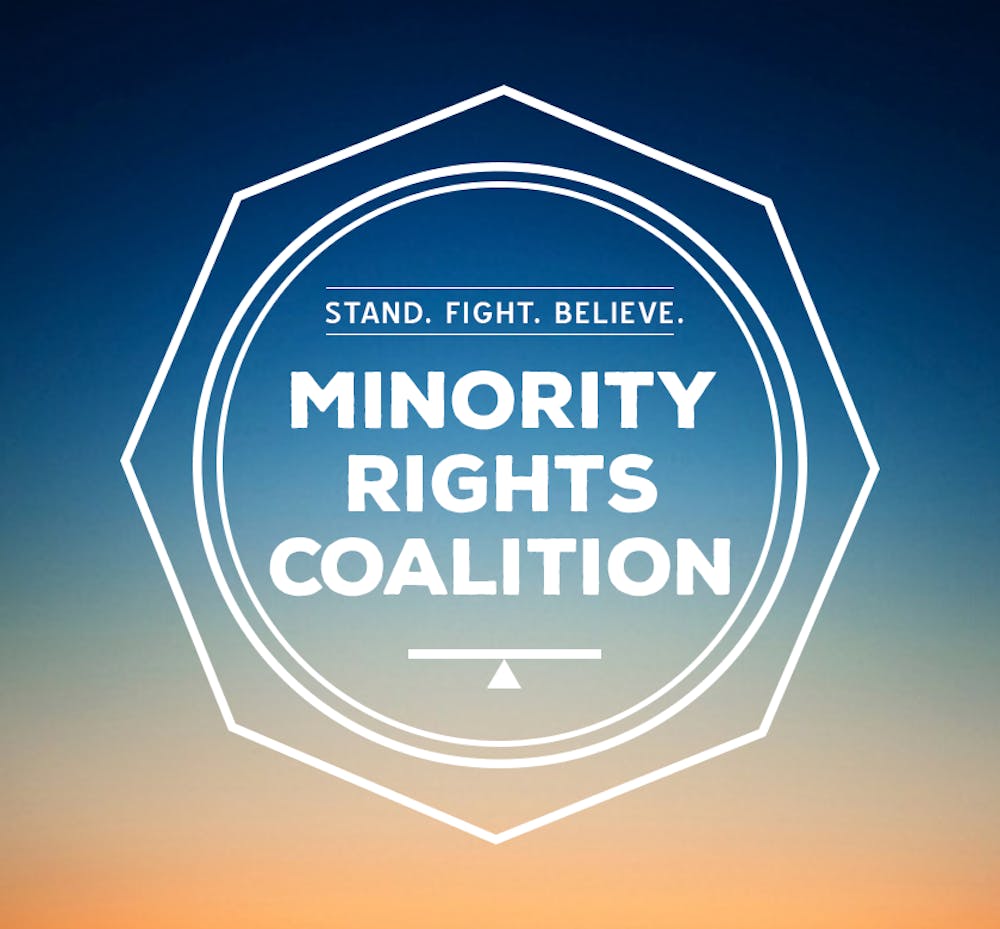The Minority Rights Coalition announced Monday night in a Facebook post its newly-elected executive team for the 2018-19 term, chaired by second-year College student Ibtisaam Amin. Amin will be succeeding Evelyn Wang, a fourth-year Commerce student and outgoing MRC chair.
“Being on the publicity committee for the past two semesters, I’ve been able to do a lot of great work with our [Chief Publicity Officer] Sabrina and the rest of our committee,” Amin said. “But it also showed me a lot of issues that are present in the minority community, and it just made me want to become even further involved and make sure that I am doing all that I can to provide those resources for others and emulate the great leadership I’ve seen in the past.”
Executive positions are selected by the MRC board, a group consisting of one representative from each of the MRC’s eight constituent organizations.
The application process for executive positions is differentiated between “mission-based” and “skill-based” positions. Positions considered “mission-based” include the chair, vice chair of advocacy and vice chair of community affairs, and require a written application and individual interview with the MRC’s board members. All candidates who submitted an application were interviewed for the positions.
Second-year College students Eileen Ying and Shally Baloch were selected to be vice chairs of advocacy and of community affairs, respectively. Second-year College student Shally Baloch was chosen as vice chair of community affairs.
Applicants who applied for “skills-based” positions, which include vice chair of organizations, vice chair of education, chief publicity officer and chief financial officer, were evaluated by the officer currently holding that position. Candidates deemed qualified by current officers were then invited to a group interview with the current board.
Third-year College student Sarah Shah was chosen as vice chair of organizations. Third-year College student Maliha Jahangiri was selected as vice chair of education. Second-year Batten student Meghan Tonner was chosen as the chief publicity officer. Second-year College student Camille Horton was selected as chief financial officer.
“The way that MRC is structured is that we have an administrative branch, which is exec, and that was everyone who was very recently elected. And then we have board which has control over everything else,” said Sophie Liao, a third-year College student and outgoing vice chair of organizations. “I think in the end, [the board] wanted [a chair] who could be a facilitator because they wanted exec to serve very much as the administrative branch and then for board to serve as the mouthpiece of the MRC.”
Amin said she hopes to continue to foster a safe space for minority students and enhance communication between MRC member organizations during her tenure as chair. Furthermore, she endeavors to encourage each member group to express their own unique voice, using the MRC as a system of support and resources.
“MRC has a lot of different organizations under it, and with those organizations come a lot of different intersectional identities,” Amin said. “So my aim for next year is not to represent all those different groups, all those different people, but to give them a voice and create a platform in which they can build themselves up and speak for themselves and have that voice that isn’t often given to them.”
Earlier this semester, the Jewish Leadership Council petitioned to join the MRC and was conditionally rejected. According to an MRC statement, the rejection came because the JLC — an umbrella organization for five Jewish student groups on Grounds — includes Hoos for Israel, an organization that concerned some of MRC’s constituent organizations.
The JLC was given two options by the MRC board. The first would have allowed for one of JLC’s member organizations to become a full, voting member of the MRC, while the second would have established a communicative, collaborative partnership between the MRC and JLC, but not grant the organization full membership status.
Both of these proposals were rejected by the JLC, though Amin said she will be meeting with incoming JLC executive members Friday to collaborate further on the issue.
“We do need Jewish representation on MRC. I think that’s something we recognize and that’s something that we need to put effort into gaining that voice, but there are some differences that we have to deal with,” Amin said. “I know that my exec team and JLC’s exec team for next year are going to be working together very closely and making sure that our communities are talking to each other… but also understanding that there are some things due to the nature of our organization and the causes we support that just can’t really be budged on.”
Liao emphasized the vitality of having an umbrella coalition because of its ability to mobilize minority groups to support effective activism. She said that instead of forcing groups to pursue similar causes alone, the MRC gives organizations a network to pursue similar efforts to promote equality together.
Amin said that she also wants to create a support network that allows all of MRC’s organizations to feel heard, and wants to provide them with the resources to accomplish their goals. She also emphasized the role that collaboration and frequent contact with member organizations will play during her administration.
“I think one of the biggest things that I’ve recognized just throughout my time here at U.Va. is that every single community, minority or not, goes through various different issues,” Amin said. “And so while we do have a space dedicated to hearing out those issues, developing solutions, [and] working together, I think it is easy to feel disconnected with all that is going on. So I want to make sure there is a big focus on talking to members of those respective communities… and knowing what they go through and what they face on a daily basis and how the MRC can support their needs.”







